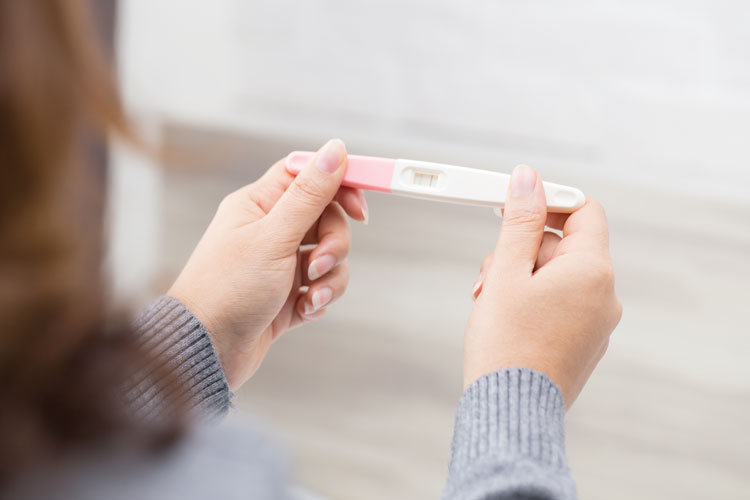Supreme Court to weigh whether law aimed at crisis pregnancy centers violates First Amendment

Shutterstock
In 2015, the California legislature enacted a law aimed largely at the field of crisis pregnancy centers—licensed and unlicensed facilities that exist to steer women away from abortion.
The centers have been around for more than 25 years, with many setting up near abortion providers and, critics say, using misleading advertising and promotion to attract women who intend to end pregnancies—but instead counseling them toward giving birth.
California sought to ensure that poor women were aware of the free services available under state auspices and to help women avoid confusion about whether they were receiving care and advice from medical professionals.
“The legislature reviewed evidence about so-called crisis pregnancy centers, finding that they frequently provide women with medically inaccurate information,” said California Attorney General Xavier Becerra in a brief filed with the U.S. Supreme Court in National Institute of Family and Life Advocates v. Becerra, to be argued March 20. “At the same time, some facilities offer services such as pregnancy testing and ultrasound examinations, which can lead women to believe they are receiving treatment in a medical setting.”
POSTING THE FACTS
The Reproductive Freedom, Accountability, Comprehensive Care and Transparency Act, known as the Reproductive FACT Act, has two main provisions. One requires certain licensed medical facilities to disclose to women that the state has publicly funded programs providing comprehensive family planning services.
This notice must be provided to clients in a pamphlet, electronically at check-in or on a waiting room sign. It reads: “California has public programs that provide immediate free or low-cost access to comprehensive family planning services (including all FDA-approved methods of contraception), prenatal care and abortion for eligible women. To determine whether you qualify, contact the county social services office at [insert the telephone number].”
A second provision of the law addresses unlicensed pregnancy centers, which don’t have a licensed medical provider on staff but may provide services such as pregnancy testing, obstetric ultrasounds and sonograms or prenatal care.
Such unlicensed facilities must post a notice in entrance areas and in advertisements stating that the “facility is not licensed as a medical facility by the state of California and has no licensed medical provider who provides or directly supervises the provision of services.”
The plaintiffs, who include a national group representing such pregnancy centers and several individual centers, argue that the requirement is a form of compelled speech that violates the First Amendment’s free speech clause.
“This case is about compelled speech and ... forcing these centers to provide free advertising for abortion,” says lawyer Kevin H. Theriot of the Alliance Defending Freedom in Scottsdale, Arizona, which is representing the National Institute of Family and Life Advocates and two of its member centers.
NIFLA, based in Fredericksburg, Virginia, supports more than 1,400 nonprofit pregnancy centers nationwide and over 130 in California. Most, if not all, of the centers are owned by people with religious-based objections to abortion.
In California, some NIFLA members are licensed medical providers, and they provide health services such as pregnancy testing, prenatal vitamins, ultrasound examinations, medical referrals and STD testing. Such centers must provide the notice about the availability of free family planning services, including the mention of abortion.
Many centers, though, are unlicensed facilities that provide nonmedical services such as pregnancy test kits that women administer themselves; emotional support; spiritual resources; preparation for parenting; and free provision of such items as maternity and baby clothing, baby food and formula, diapers, strollers and nursery furniture. But they also may provide services such as sonograms and ultrasounds.
“For us, the essence of this case is about First Amendment rights,” says Anne O’Connor, NIFLA’s vice president of legal affairs. “Americans should not be forced by the government to promote a message that conflicts with our beliefs.”
This article was published in the March 2018 ABA Journal with the title "Truth in Advertising: Court to weigh whether law aimed at crisis pregnancy centers violates First Amendment."



